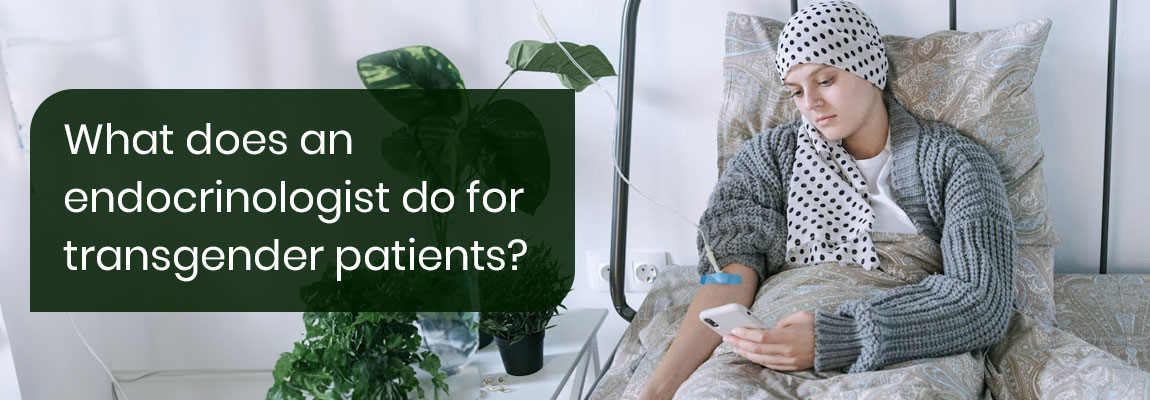
An endocrinologist is a doctor who helps people with hormone-related health issues. Endocrine therapy is used to help change the body’s physical features to lessen the discomfort a person feels when their gender identity doesn’t match their body. It can be an option when someone has been diagnosed with gender dysphoria or incongruence.
Endocrinologists guide their patients through hormonal changes, help them adjust to a new normal, and support them in regaining control of their lives. They are experts in diagnosing and treating disorders that affect the body’s hormone-producing organs and glands, which together form the endocrine system. Tests are often conducted to check hormone levels and the proper functioning of these glands.
Endocrinologist Brisbane- Transgender Healthcare
Endocrinologists are a crucial part of the team that helps transgender people with their health. They provide hormones that are different from the ones typically used for men and women so that patients can change their bodies to match their true gender. This process takes time, and it’s important for patients to have support from mental health professionals as well.
Transgender people often need hormone therapy, but many doctors who treat them haven’t had much training in this area. If someone is going through the process of transitioning to a different gender, hormone therapy is really important. Endocrinologists in Brisbane have experts who know a lot about hormones and how they affect the body. They understand that everyone’s journey is different, so they give personalized care to each person.
Nonbinary Hormone Therapy: Goals and Considerations
The doctor’s goal for hormone therapy is to give effective treatment with minimal risk. This involves understanding what changes the patient wants and working to achieve them with hormone medications. It’s important to understand each person’s needs based on their nonbinary gender identity. Some nonbinary individuals may want a small amount of testosterone to look less feminine and more androgynous without becoming more masculine.
The first medical evaluation should include the patient’s history, a physical exam, and blood tests to check hormone levels, liver and kidney function, cholesterol, and diabetes status. Before starting hormone treatment, patients need to be aware of the specific side effects of the drugs and the likelihood of losing the ability to have children.
Hormone Replacement Therapy (HRT)
Transgender hormone therapy, also known as hormone replacement therapy (HRT) or gender-affirming hormone therapy (GAHT), involves giving transgender or gender-nonconforming individuals hormones and other medications to help their physical features match their gender identity. There are two types of this therapy: one for making someone more masculine and the other for making someone more feminine.
Feminizing Hormone Treatments for Transitioning
Feminizing hormone treatments involve taking estrogen to develop feminine characteristics and decrease testosterone levels. This can lead to changes such as breast growth, softer skin, and a shift in body fat distribution. It’s important to use estradiol instead of conjugated estrogens to reduce the risk of blood clots. Some patients may benefit from using transdermal estradiol instead of taking it orally, especially if they are at higher risk of blood clots due to factors like age, smoking, higher body weight, or recent surgery.
Anti-androgen medications like spironolactone can block the effects of testosterone in the body, leading to changes such as breast development and reduced body hair. They help lower testosterone levels and encourage the development of feminine traits.
Masculinizing Hormone Treatments for Transitioning
When a person is transitioning to become more masculine, an endocrinologist provides them with testosterone. This hormone helps create typical male characteristics like a deeper voice, more body hair, and increased muscle mass, and it can also stop periods. However, there can be side effects like acne, hair loss, and changes in cholesterol and blood cells. Testosterone is usually given through injections, but patches are also available for those who can’t or don’t want injections.
Young people who are transgender or have a different gender identity can also get medical treatment by an endocrinologist. Medicines that stop the changes of puberty help them feel more comfortable in their bodies. Starting at around 13 or 14, they can take hormones to start developing the physical traits of the gender they identify with. It’s really important for these young people to have doctors who understand their needs and can support them through the process. They may also need counseling to help them with any emotional challenges along the way.
Special Considerations
When it comes to transitioning, it’s okay to not be sure how far you want to go, and it’s okay to change your mind. The first step is to talk to someone, like a therapist, an endocrinologist, or a support group. Medical transition involves using medications to stop unwanted changes during puberty or taking hormones to match your gender. Surgical transition involves changing body parts like breasts and genitals. Some treatments can be reversed, while others are permanent. There’s no one “perfect” way for transgender youth, but they need support from family, the community, and healthcare professionals.